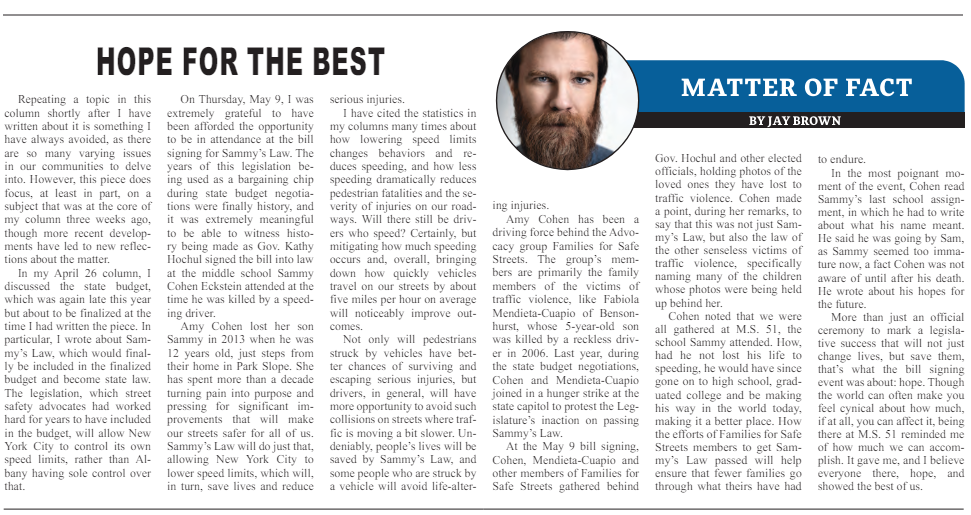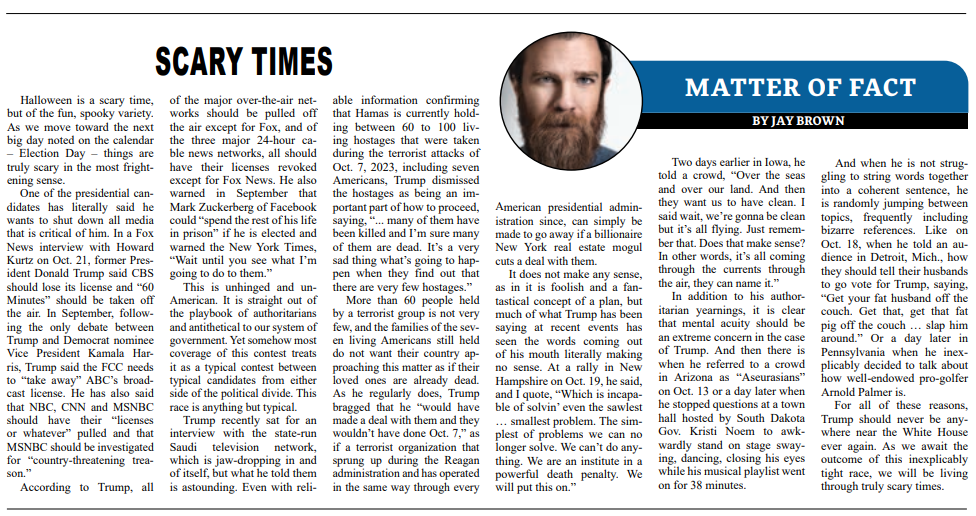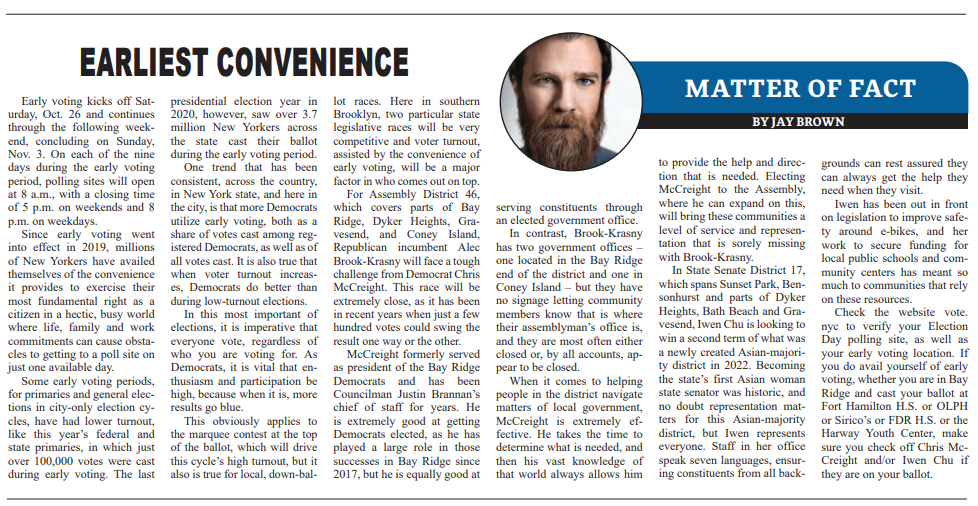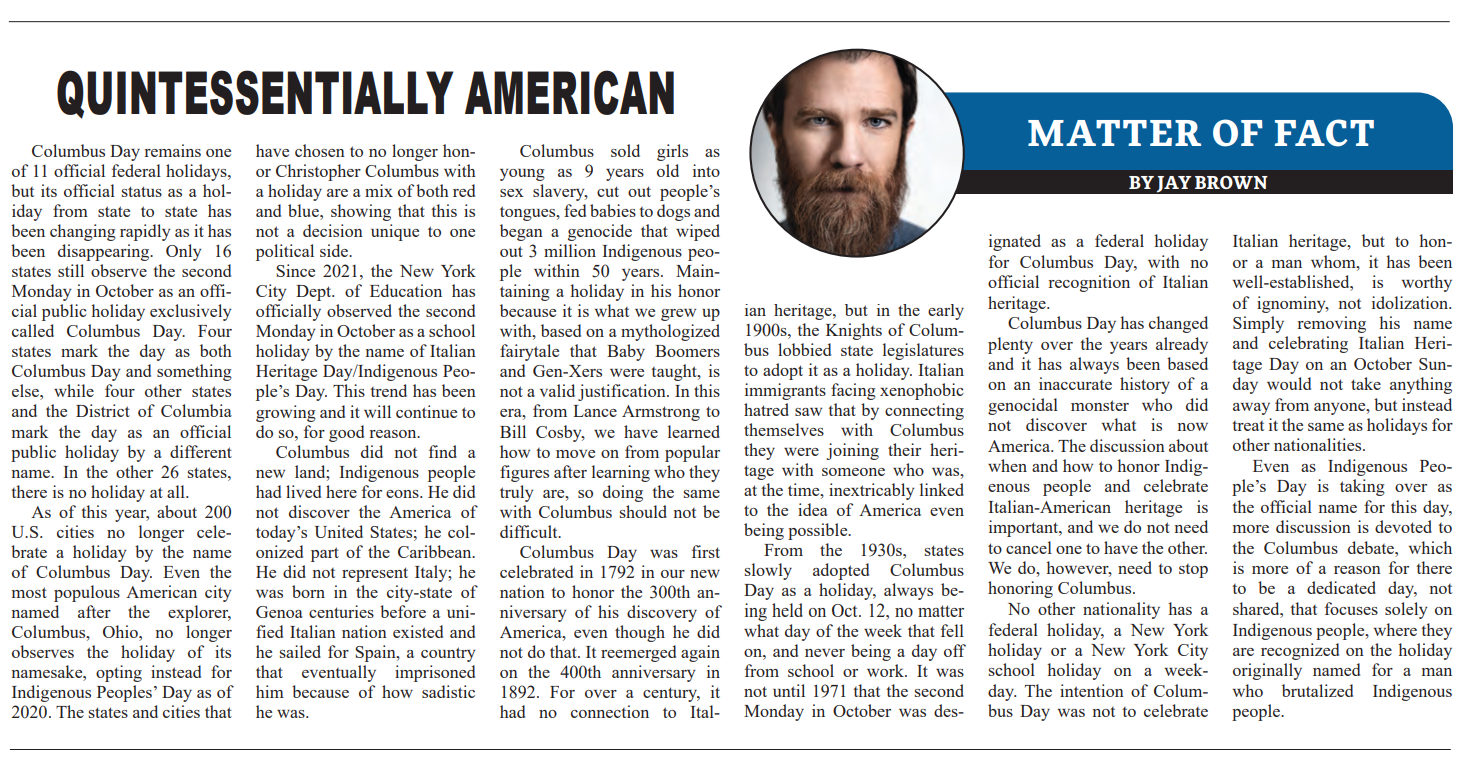This column, from the weekly opinion piece MATTER OF FACT, first appeared on BrooklynReporter.com, the Home Reporter and Spectator dated May 17, 2024

Repeating a topic in this column shortly after I have written about it is something I have always avoided, as there are so many varying issues in our communities to delve into. However, this piece does focus, at least in part, on a subject that was at the core of my column three weeks ago, though more recent developments have led to new reflections about the matter.
In my April 26 column, I discussed the state budget, which was again late this year but about to be finalized at the time I had written the piece. In particular, I wrote about Sammy’s Law, which would finally be included in the finalized budget and become state law. The legislation, which street safety advocates had worked hard for years to have included in the budget, will allow New York City to control its own speed limits, rather than Albany having sole control over that.
On Thursday, May 9, I was extremely grateful to have been afforded the opportunity to be in attendance at the bill signing for Sammy’s Law. The years of this legislation being used as a bargaining chip during state budget negotiations were finally history, and it was extremely meaningful to be able to witness history being made as Governor Hochul signed the bill into law at the middle school Sammy Cohen Eckstein attended at the time he was killed by a speeding driver.
Amy Cohen lost her son Sammy in 2013 when he was 12-years-old, just steps from their home in Park Slope. She has spent more than a decade, turning pain into purpose and pressing for significant improvements that will make our streets safer for all of us. Sammy’s Law will do just that, allowing New York City to lower speed limits, which will, in turn, save lives and reduce serious injuries.
I have cited the statistics in my columns many times about how lowering speed limits changes behaviors and reduces speeding, and how less speeding dramatically reduces pedestrian fatalities and the severity of injuries on our roadways. Will there still be drivers who speed? Certainly, but mitigating how much speeding occurs and, overall, bringing down how quickly vehicles travel on our streets by about five miles per hour on average will noticeably improve outcomes.
Not only will pedestrians struck by vehicles have better chances of surviving and escaping serious injuries, but drivers, in general, will have more opportunity to avoid such collisions on streets where traffic is moving a bit slower. Undeniably, people’s lives will be saved by Sammy’s Law, and some people who are struck by a vehicle will avoid life-altering injuries.
Amy Cohen has been a driving force behind the Advocacy group Families For Safe Streets. The group’s members are primarily the family members of the victims of traffic violence, like Fabiola Mendieta-Cuapio of Bensonhurst, whose five-year-old son was killed by a reckless driver in 2006. Last year, during the state budget negotiations, Cohen and Mendieta-Cuapio joined in a hunger strike at the state capitol to protest the legislature’s inaction on passing Sammy’s Law.
At the May 9 bill signing, Cohen, Mendieta-Cuapio, and other members of Families for Safe Streets gathered behind Governor Hochul and other elected officials, holding photos of the loved ones they have lost to traffic violence. Cohen made a point, during her remarks, to say that this was not just Sammy’s Law, but also the law of the other senseless victims of traffic violence, specifically naming many of the children whose photos were being held up behind her.
Cohen noted that we were all gathered at M.S. 51, the school Sammy attended. How, had he not lost his life to speeding he would have since gone on to high school, graduated college, and be making his way in the world today, making it a better place. How the efforts of Families for Safe Streets members to get Sammy’s Law passed will help ensure that fewer families go through what theirs have had to endure.
In the most poignant moment of the event, Cohen read Sammy’s last school assignment, in which he had to write about what his name meant. He said he was going by Sam, as Sammy seemed too immature now, a fact Cohen was not aware of until after his death. He wrote about his hopes for the future.
More than just an official ceremony to mark a legislative success that will not just change lives, but save them, that’s what the bill signing event was about: hope. Though the world can often make you feel cynical about how much, if at all, you can affect it, being there at M.S. 51 reminded me of how much we can accomplish. It gave me, and I believe everyone there, hope, and showed the best of us.



